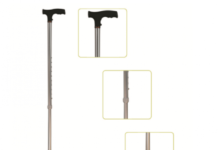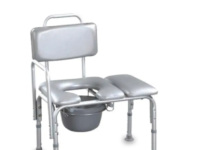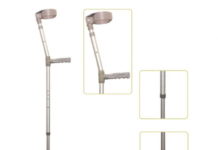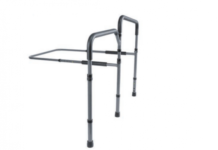From yoga to photography, stress-relieving hobbies like gardening, cooking, and journaling help you unwind, boost creativity, and improve mental well-being.
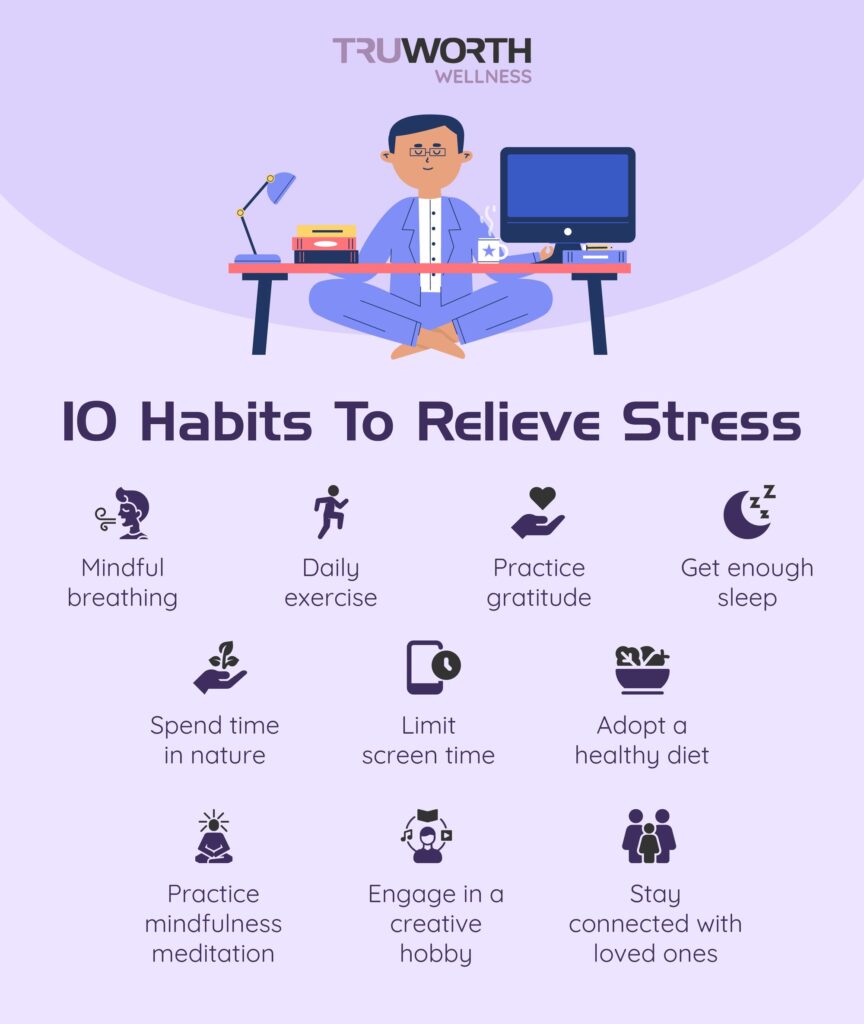
In today’s fast-paced world, it is essential to take some time for yourself to unwind and have fun. Engaging in hobbies can be a great way to relieve stress and improve your well-being. There are many hobbies to choose from, but some are particularly effective at helping you relax and de-stress. Whether it is creative activities like painting or crafting, physical activities such as yoga or hiking, or calming practices like reading or journaling – each hobby offers its own set of benefits. In this guide, you will learn about the stress-relieving advantages of various hobbies and find helpful resources to help you get started. So, find a new hobby that brings you joy and helps you recharge for a healthier, more balanced life. Here is a list of 10 such hobbies that help you reduce anxiety and stress from daily life –
How to choose a hobby that relieves stress?
There are many ways to manage chronic stress, but changing your lifestyle is one of the most effective strategies. A great way to start making changes is by picking up a hobby, as nervous energy can negatively affect your emotional health. After a long and busy workday, it is important to choose hobbies that are easy, enjoyable, and accessible. Avoid complicated or time-consuming activities that could add more stress to your day. The goal is to find something that brings you relaxation and joy.
Here are some tips to help you pick the right hobby for you:
- If you enjoy making things, consider hobbies that let you create something tangible. Whether it is knitting a sweater or growing an edible garden – seeing the finished product will give you a sense of accomplishment.
- Since your brain has been working hard all day, it is helpful to choose a hobby that also relaxes your mind. Focusing on something other than work can help reduce tension. Light reading, playing brain games designed to improve cognitive functions, or solving crossword puzzles are great options for a calming hobby.
- It is also a good idea to have a hobby that is different from your work. For example, if you are a doctor, knitting or gardening could be perfect hobbies, as they are completely unrelated to your daily tasks. This separation helps you unwind and shift your focus.
- Consider whether you want a hobby you can do alone or with others. Some hobbies, like painting or DIY projects, can be enjoyed by yourself. On the other hand, hobbies like group activities provide the chance to socialize and meet new people outside of work. If you are feeling unsure about starting a hobby on your own, group activities can help you feel more comfortable.
- Lastly, think about where you want to do your hobby. If you work from home, you might prefer activities that get you outside and allow you to enjoy fresh air. On the other hand, if you work in an office, individual hobbies you can do at home such as painting or reading might be a better fit. Finding the right hobby can help you relieve stress and improve your overall well-being.
Now, let’s move on to the list of stress-relieving hobbies.
Hobbies to help relieve stress –
1. Journaling
Writing in a journal is a great way to express your thoughts and feelings. It can help you better understand your emotions, especially if you are dealing with anxiety. Journaling can be a helpful hobby that allows you to gain control over your feelings and improve your mental health. Journaling provides an outlet to face overwhelming emotions and express yourself. It can help you –
- Cope with stress
- Manage anxiety
- Create order in a chaotic world
- Focus on your most important concerns
- Track daily symptoms and identify triggers
- Recognize negative self-talk and behaviors
- Better understand your inner thoughts and feelings
- Pinpoint the causes of anxiety and work on solutions
To make journaling easy, keep a pen and paper with you at all times. This way, you can write down any thoughts or ideas as they come to you. Your journal does not need to follow any specific format. It is your personal space to write about whatever feels right. Also, try to make journaling a regular habit. Set aside time each day to sit with your thoughts and put them on paper. Think of this time as a way to unwind and relax. Find a comfortable, calming place to write, which will help reduce stress and ease feelings of being overwhelmed.
2. Gardening
Planting a garden can be a great way to reduce stress. Whether you have a small patio or a large yard, turning your space into a beautiful garden can help you relax. The process of caring for your garden itself can be calming. Additionally, the peaceful environment you create can bring even more relaxation.
In a recent study, participants were asked to do a stressful task. Then, they were split into two groups. One group spent 30 minutes gardening in their own gardens, while the other group spent 30 minutes reading. The results showed that gardening helped reduce stress much more than reading.
Gardening offers many benefits that help with stress relief. It gets you outdoors and allows you to focus on something positive. Tending to plants gives you a sense of purpose and achievement. Watching your plants grow and flourish also brings a sense of accomplishment. Gardening allows you to take a break from daily worries and immerse yourself in nature, which is known to have a calming effect on the mind. Even if you do not have a lot of space, you can still enjoy gardening. Small projects like potted plants, window boxes, or even indoor plants can bring a touch of nature to your home. Gardening does not have to be complex or time-consuming. It can be a simple, enjoyable way to unwind and reduce stress after a busy day.
3. Yoga practicing
Yoga is a great hobby for anyone looking for a free activity that can be done at home anytime. All you need is yoga mat and comfortable clothes, which you probably already have. This simple setup makes it easy to get started. Yoga has many mental and physical health benefits. One of the key benefits is its ability to help reduce anxiety. Practicing yoga can also help manage the symptoms that often come with anxiety, like trouble sleeping, depression, chronic pain, and digestive issues.
Studies show that yoga can reduce the physical effects of stress, such as a fast heart rate and shallow breathing. This makes yoga a great way to calm your body and mind. It is similar to deep breathing, exercise, or spending time with friends and family. If you are new to yoga, there are different types you can try to find what suits you best. You can start with short sessions and gradually increase the length as you get more comfortable. There are many free yoga videos on YouTube, with some as short as 10 minutes and others lasting over an hour. This makes it easy to practice yoga at your own pace and in the comfort of your home.
4. Puzzle Solving
If you want to take your mind off things, try doing a puzzle. It is an activity that helps you focus deeply and forget about your worries. Working on a jigsaw puzzle or looking for matching pieces is a great way to distract yourself from anxious thoughts. Puzzles are perfect for doing alone, but they can also be enjoyed with others if you prefer having company. You do not necessarily have to talk much or interact a lot while working on a puzzle. This makes this activity a relaxing activity to do with friends or family.
One of the best things about puzzles is that you can take a break whenever you need to. If you are feeling stressed or anxious, you can always step away and come back to it later. When you return, you can pick up right where you left off. Working on a puzzle forces you to focus on the task at hand. You experience the satisfaction of finding the right pieces that fit together, which can help calm your mind. It is a great hobby for anyone dealing with anxiety because it keeps you engaged in something simple and rewarding. Moreover, it does not require a lot of time or effort, making it a great way to unwind.
5. Maintaining an aquariu
Watching fish in an aquarium has proven health benefits such as lowering blood pressure and reducing stress. Keeping an aquarium can be a great hobby because it requires regular care, but it is not too demanding. It allows you to create a peaceful environment with fish, rocks, and plants, which can be both relaxing and enjoyable. Maintaining an aquarium can also connect you with other fish enthusiasts who share your interest in saltwater fish. It gives you the chance to learn from others and share tips on how to care for your fish and tank. You can experiment with different types of fish and plants to create a unique, beautiful underwater world.
The time you spend caring for your aquarium can help you feel more relaxed and the calming effect of watching the fish swim around can provide a sense of peace. This hobby is simple and can be very rewarding, making it a great choice for reducing stress and improving mental well-being. In addition to this, the process of maintaining the tank and watching your aquatic world grow can bring a sense of accomplishment.
6. Swimming
Swimming is a great way to reduce anxiety and improve mental health. It helps lower the risk of depression by releasing endorphins, which naturally make you feel good. It can also improve your sleep. Many swimmers say swimming is a healing activity because it is both energizing and relaxing. The repetitive motions of swimming make it feel meditative, which can calm the mind. Moreover, studies show that swimming for just 30 minutes, three times a week can reduce stress, anxiety, and symptoms of depression. The calming effect of being in the water adds to the benefits. Swimming is particularly helpful for mental health because it combines physical exercise with relaxation.
While any form of exercise can help manage stress, swimming stands out as a powerful tool for improving mental well-being. It provides a full-body workout while giving your mind a break from daily worries. Whether you swim in a pool or the ocean, the experience can be refreshing and soothing. In addition to this, swimming is a low-impact exercise that makes it suitable for people of all ages and fitness levels. With its mental and physical benefits, swimming is a simple yet effective way to boost your overall health and reduce stress.
7. Cooking
Studies have shown that cooking can be very soothing. Experts say it helps people focus on an activity that involves all five senses and provides a break from stress and anxiety. When you are cooking, you can get lost in the creativity of it, which can be calming and improve your mood. Many people enjoy making a special meal, especially when they can share it with family or friends. The process of cooking gives you a sense of accomplishment and joy. Moreover, cooking your own meals allows you to control what goes into your food which makes it easier to eat healthy.
Preparing and eating healthy food is a great way to nourish both your body and mind. The right nutrition can help maintain good brain health and improve overall well-being. Cooking encourages you to focus on healthy ingredients that can improve your mood and energy levels. Not only does cooking reduce anxiety, but it also helps you stay physically healthy. It is a simple yet effective way to practice self-care. Whether you are trying out new recipes or cooking old favorites – the act of preparing food can be both fun and rewarding.
8. Knitting
Knitting is not only a great way to create beautiful gifts for yourself and others, but it also helps you relax. The steady and repetitive movements can help you enter a state of “flow,” where you focus deeply on the task and forget about your worries. This focused activity can be very calming. At the same time, knitting can also provide an outlet for nervous energy. If you are feeling anxious or stressed, the simple action of knitting can give you something to focus on. It helps to take your mind off other concerns. The rhythm of the needles can be soothing and allow you to relax and unwind after a busy day.
In addition to being a way to relieve stress, knitting can be very satisfying. Watching your project come together stitch by stitch gives you a sense of accomplishment. Moreover, knitting is a creative activity, and creating something with your hands can be rewarding. Knitting is also portable, so you can do it anywhere. Whether you are at home, on the go, or with friends – it is easy to take knitting along and use it as a way to manage stress throughout your day. Overall, knitting is a simple yet effective way to relax and calm your mind.
9. Photography
Having anxiety can feel limiting, but photography is a hobby that does not hold you back. One of the best things about photography is that there are endless subjects to capture that give you plenty of options. If you are not into socializing, you can still enjoy photography by focusing on landscapes or nature. Taking walks outside and capturing the beauty around you can be refreshing for your mind. Being in nature, with fresh air and natural light is great for your mental health. If you prefer photographing people, you can still enjoy photography without feeling too social. Many find that taking pictures of others boosts their confidence. When you are behind the camera, it can give you a sense of control and focus.
Photography is also a creative outlet. Studies show that engaging in creative activities regularly can improve your mental well-being. People who include creative practices in their daily lives feel better emotionally compared to those who don’t. No matter what you decide to photograph, it is an opportunity to express yourself and relax. Photography lets you focus on the present moment and it can be a great way to distract your mind from stress or anxiety. Whether you are shooting nature or portraits – photography offers a chance to explore your creativity while taking care of your mental health.
10. Drawing, Painting, and Coloring
Drawing is a great way to express your feelings and manage stress. It helps you process emotions, distract yourself, and relax. The final piece of art will be something personal and enjoyable that you can keep or share with others. Painting provides similar benefits to drawing, but in a different form. It is another creative way to relieve stress and improve your mood. Coloring is another popular activity that helps reduce stress. While it may seem like something for kids, there are now many affordable coloring books for adults designed to help with stress and anxiety.
Coloring can be very relaxing. The simple act of filling in the pages gives you a sense of accomplishment. Studies show that coloring can help reduce anxiety and improve emotional health for a few reasons. It can bring back happy memories of creating art as a child, which can make you feel good. Drawing, painting, or coloring also offers a break from your daily routine. It allows you to focus on something fun and creative instead of the stresses of life. Additionally, it encourages mindfulness. It helps you focus on the present moment and gives you a chance to disconnect from life’s chaos.
Whether it is drawing, painting, or coloring, these activities provide a simple and enjoyable way to manage stress and boost your mood. They offer both relaxation and creative expression, helping you feel better emotionally.
To conclude everything, engaging in hobbies like gardening, yoga, swimming, and photography can help reduce stress and improve mental well-being. Activities such as cooking, journaling, and coloring also offer relaxation and a creative outlet. Incorporating these hobbies into your routine provides a simple way to manage anxiety and find balance in daily life.



